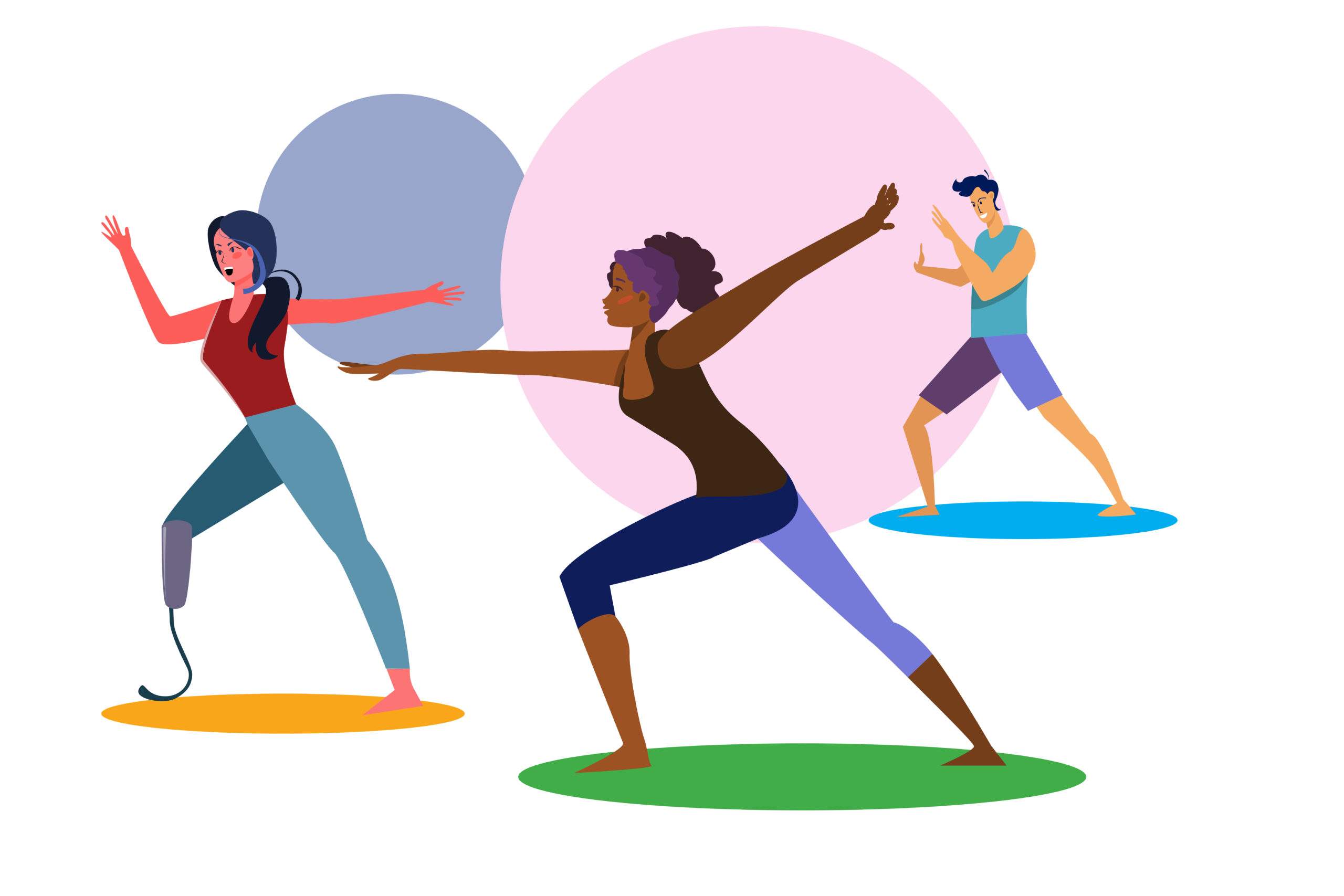I’m old enough to remember when working out was becoming “a thing.” It was the late ’70s and people started tying up their tennis shoes and going for jogs—Jane Fonda put on her leotard and started teaching us calisthenics.
Today, working out is a daily non-negotiable for many in order to maintain physical health. In fact, people often have a variety of workouts and cross-train by alternating their activities. This is a great way to build long-lasting strength and flexibility in the whole body.
Did you know we can do the same for our mind?
In a previous post, I defined mental fitness as the capacity of the body and mind to work together to increase our physical energy, emotional stability, and mental clarity and calm. If the idea of getting mentally fit is new to you, think about combining your current physical exercise with additional mental fitness activities that cultivate calm and build awareness and clarity. If you don’t have a workout routine right now and are interested in creating one, starting with these mental fitness tips can help you develop a balanced plan for physical and mental fitness.
Cross-training for mental fitness may include:
- Physical fitness cross-training: Mixing cardio, strength, and flexibility training with fun outdoor activities and active rest to get a balanced workout. Some examples you might try rotating in your routine are running, lifting weights, yoga, or gardening.
- Breathing exercises: By purposefully deepening our inhales and elongating our exhales, we balance the nervous system. Try this brief breath exercise designed to help you feel more grounded and awake.
- Mindfulness meditation: When we take time to focus on the present moment, we can let go of stress and cultivate awareness moment to moment.
- Maintaining a sleep hygiene routine: Maximize quality shut eye and boost your mental acuity and agility during the day by purposefully winding down. Lower the lights early, limit evening caffeine and alcohol, and build in time for an evening meditation or gentle mindful movement.
- Priming the gut-brain connection: Psychiatrist, professional chef, and nutrition specialist Uma Naidoo writes: “The food you eat can have just as profound an effect on your brain and your mental health as the drugs prescribed by your doctor. The reason: Your gut and your brain are in constant communication with each other.”
- Active recovery for mind and body: Take a break. The power of pausing is an excellent way to discover the benefits of silence and stillness.
Getting Started with Mental Fitness
The best way to start cross-training for mental fitness is to start with what you’re already doing. You may be surprised at how much you are already cross-training!
Grab a fresh calendar (a paper one still works well!) and a pen.
- First, based on your current routine, plan out your physical exercise for the week.
- Then, add in the other practices and activities that you already do consistently such as meditation, gardening, singing, or other hobbies.
- Next, write out the categories for mental fitness that are not currently in your daily routine. Perhaps you don’t yet have a breathing practice or have no clue about the gut-brain connection. List them at the top of the calendar. Commit to learning about one new activity per week by adding a short beginner practice from the list above into your weekly mental fitness cross-training.
Getting mentally fit and feeling more calm and clear includes training both your body and your mind to be stronger, more resilient, and flexible. You likely have a good starting place. Add in new practices and protocols slowly and steadily based on your curiosity. Most importantly, don’t add so many new practices that it’s overwhelming. The process of getting mentally fit is easier if you enjoy it. At the end of the day, fitness should be fun.
read more
Using the Body and Breath to Get Out of Your Head
We often practice mindfulness in stillness. Here, Cara Bradley shares how mindful movement and breath awareness can help us shift away from stress.
Read More
Getting Started with Mindful Movement
Riding a bike, lifting weights, sweating it out on a treadmill—each can be a mindfulness practice. Whatever the physical activity, instead of simply working out to master a skill or improve your condition, you can move and breathe in a way that shifts you from feeling busy and distracted to feeling strong and capable.
Read More
A 12-Minute 4-7-8 Breathing Meditation
This easy breathing practice helps to release stagnant air in the lungs and find calm.
Read More











